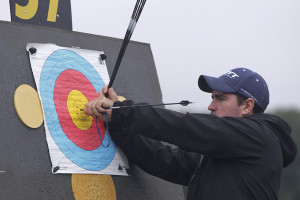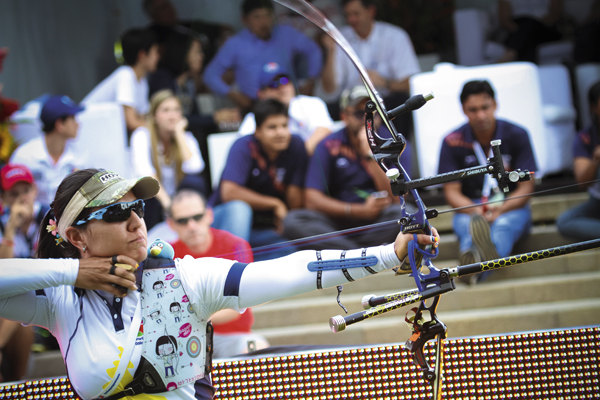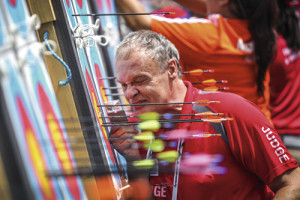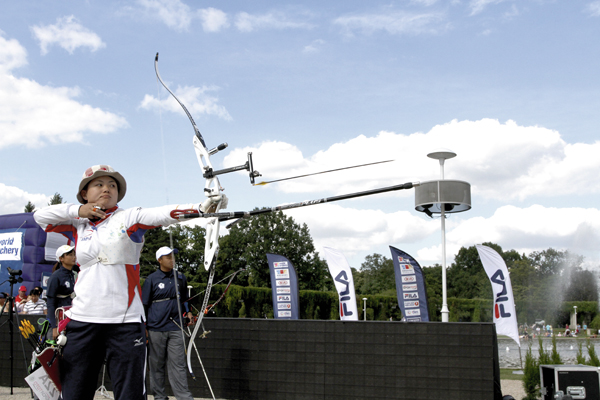… when talent doesn’t work hard. Roy Rose outlines why the most important thing you need to get good at archery isn’t a natural knack for it
To attain elite status in any sporting endeavour, you must combine a degree of talent with the capacity to be a focused hard worker. The world of sport and many other human endeavours are littered with talent unfulfilled. Most sports require a cross-section of skills to be mastered, and many also demand a physical status, occupying time and effort.
We are blessed to be in a sport that is of short duration in process and does not require any specific body type or any huge physical attributes. This is naturally an advantage. It is also true that archers do not have to practise and develop the wide range of shots and skills a quality golfer, cricketer, or tennis player needs to, as an example.
So, does this mean that one can attain upper echelon status in competitive archery with much less focus or hard work? The answer is most assuredly: ‘No’. Why? Well, most popular sports do not require exemplary functioning. The retrieval aspect in a majority of sports sees the golfer still able to shoot par after numerous trips to the rough, errors in chipping or a percentage of ill-judged putts, while the tennis champ gets two chances on serve to bring the ball into play, can be down love-40 and can still come back from a couple of faulty shots to take out the game. The batsman is very aware that the snick through slips scores four, the same as a perfectly executed cover drive. There are no photographs in the score book.

Talent alone isn’t enough to succeed – you need to be prepared to put in the long hours of practice too
I could continue to point out that less than perfect execution is inherent in all sports, but virtually all of them can function on just a proportion of execution accuracy for a player to attain a lofty status. This is the payback the athlete is given for the exorbitant amount of skill mastery time and physical preparedness he or she puts in, in practice and at the gym.
Ours, however, is quite a unique sporting endeavour. No, we don’t have to master the cross-section of shots that the golfer, the tennis player, or the test-level cricketer must; we only have a single shot process to contend with. In these disciplines, they have the advantage of not being expected to reproduce this range of skills perfectly to rise to international level. Major errors are retrievable under their playing rules, and minor errors can have little impact on total performance. It is not so for us.
For the archer, the major plus of only needing to learn and execute a relatively simple process, which takes but a few seconds, is countered by the absolute necessity to duplicate it with virtual video replay-like precision, in order to reach international recognition.
The less-than-duplicate departure of an arrow to the lower scoring rings is a final entity in itself. Those lost points, particularly in today’s head-to-head, dozen or 15-arrow eliminations, or in an indoor or field round, where close-to-perfect scoring must occur to make the podium, underlines our unique status, and the absolute need for hard work in perfecting our form and shot process.
Excellent hand-eye coordination, or a physical aptitude or advantage, can take the aspiring archer a long way to above average proficiency, and this may occur quite quickly. But becoming a truly good archer will only result from hard hours of focused practice. It is patently obvious that if perfectly duplicate form and execution are the key to accuracy, then the more times they are rehearsed and worked at, the better the chances are that they will become perfectly duplicative under tournament stress. This is where the hard work, long hours and the physical and mental focus must come into play, if one wishes to be competitive at national and international level.
A quote from a very esteemed Korean coach always comes to mind when I explore this question of focus and hard work: “You don’t need talent to shoot a bow! What is talent anyhow? You need hard work. Hard work never killed anyone, it’s just that most everyone is not prepared to take the risk.”
Clearly not everyone involved in our sport either seeks, or has the opportunity time-wise, to aspire to greatness. But for those who do, the message is indelible. Work hard, be knowledgeable about your equipment, train strong, practise diligently, always being aware of the fact that our sport has the plus of being a simple shot duration, but the minus is that only perfect form and duplicative execution will see us be the best we can be.




